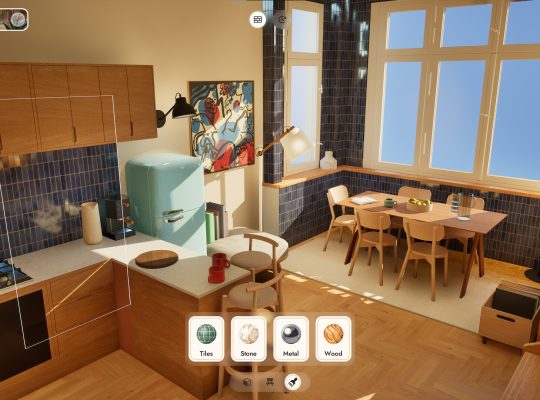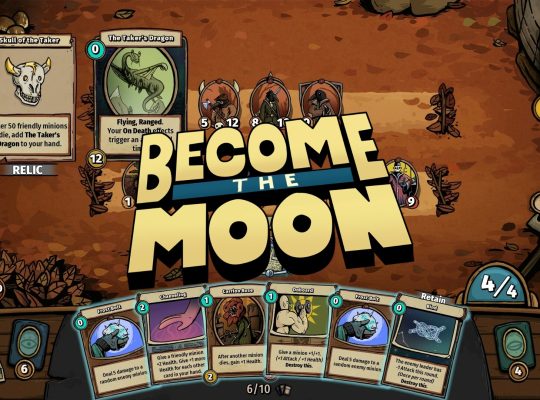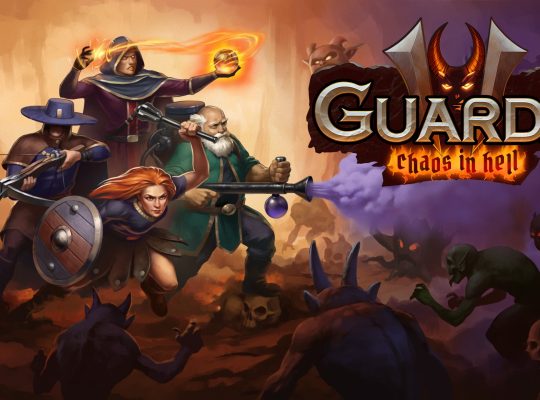- DEVELOPER: Split Second Games
- PUBLISHER: Yogcast Games
- PLATFORMS: PC
- GENRE: Tower-defense
- RELEASE DATE: May 2, 2024
- STARTING PRICE: 11,79€
- REVIEWED VERSION: PC
I've played a lot of tower-defense titles in my life, and I'd venture to say that Hexguardian is rough around the edges. In principle, this title truly brings an interesting combination, with tower-defense elements where we can place various towers, armies and spells, but also the possibility to build our own map by adding new blocks while trying to survive as long as possible. I was surprised how well the game works and how it encourages us to think tactically. However, it does punish you quite a bit when it comes to gold and talents, which I'll explain later.
In Hexguardian, as the name suggests, you face various enemies on hexagonal tiles, which you can connect to create longer routes, improve building placement options, or block enemies' passage. The game takes place across five different biomes, such as desert, rainforest or grassland, and offers rouge-like and weekly challenges, each with its own difficulty. Biomes have their advantages, for example, in a snow biome you can slow down enemies with a snow spell, ships move slower, while ice attacks hit harder. You have many different towers in your arsenal, from basic arrows and bombs to those that shoot ice, fire or electricity. You also have soldiers like spearmen, archers, mages and horsemen, and various buildings that bring in income or other benefits, from fishing huts to wonders of the world like Machu Picchu. Each building brings money or other special features.


You unlock all of this through various talents. Every time you play, you earn trophies that you can spend. There are a lot of them, but you can't take them all, so you can decide which buildings you want to lock. You also unlock various perks, such as higher castle health, stronger soldier attacks, or more useful spells. However, this is where we come to a big problem. The game requires a lot of grinding and effort to progress. You won't win many trophies quickly. You need to survive a minimum of 10 days for each playthrough to be worth it, and restarting can be frustrating. In fact, the replayability of this game is great, but it forces you to play as long as possible, instead of unlocking most things after a certain amount of time, which would give more room for experimentation.
In this sense, the game does not have an automatic reset option. You have to go back to the main menu and set everything up again. When you get to the map, it's important to carefully plan where you will place the towers and how you will connect the tiles. My big gripe with games is where you can place them. It used to happen that you could only place two or three towers in one line or circle, which is not always the best situation. Every time you place towers, their cost increases, but the game punishes you very hard for that. Due to the small flow of gold, if you don't have, for example, buildings that give you gold, it's harder to maintain finances, and the enemies become extremely difficult after a certain time, which can ruin the fun of playing. Upgrades are often not significantly better than base versions (depending on tower type). Every tower you upgrade makes the other one even more expensive to upgrade and I think that's the biggest problem with this game.
I can say that the core of this game is extremely fun and I often came back to play another round, precisely because of the randomly generated levels, map upgrades and blocks, which made each playthrough different. After surviving a wave of enemies, you'll be presented with three random upgrades, sometimes more, to choose from. This includes unlocking an entirely new defense, upgrading your current defense, or acquiring a new spell for the next wave. Unfortunately, the game has issues with balancing certain mechanics and features. The tiles you place have their own unique features, such as various houses, chests and waterfalls that you can click on. But they are quite random and you don't have a certain control over them (they depend a lot on the RNG). Also, you never get to upgrade everything you need… You get the feeling that special upgrades with the help of cards, for example, critical attacks are useless.


What I was extremely surprised by were the various bosses you had to defeat to unlock a wide range of blessings. These blessings allow you to earn more gold, increase the range and damage of your defenses, improve the power of your spells, and more. The Hexguardian also has a cute look. The streams of rivers flowing from the ends of the earth look beautiful, while the firing of arrows and cannons has its own charm. For the most part, it all looks very enchanting and beautiful.
I'm the kind of player who prefers fun, in the sense that if the main loop is fun I'll probably play for hours, but I'm also trying to find long-term value in Hexguardian. It can be challenging, too random or uneven. The game has more random events than most tower-defense titles. Sometimes you can make fast progress and other times you can lose fast. Many factors change during the game. You don't have to agree with me, everyone is entitled to their own opinion, but the one thing that kept me with this game for a very long time was the various upgrades and talents that you unlock from time to time. You just simply want to try everything.
As I mentioned at the beginning, Hexguardian is pretty unpolished. While it has good replayability, interesting hex tile placement mechanics, and a good core of tower-defense gameplay, it can be confusing and not for everyone as the progression rate is very slow. I tried to enjoy this title but it just didn't click. I appreciate what Hexguardian has to offer, however I didn't like it as much as I expected. But in my case, you should look at the game objectively. It really is a quality and unique tower-defense title.
Review copy provided by the publisher
3.8









